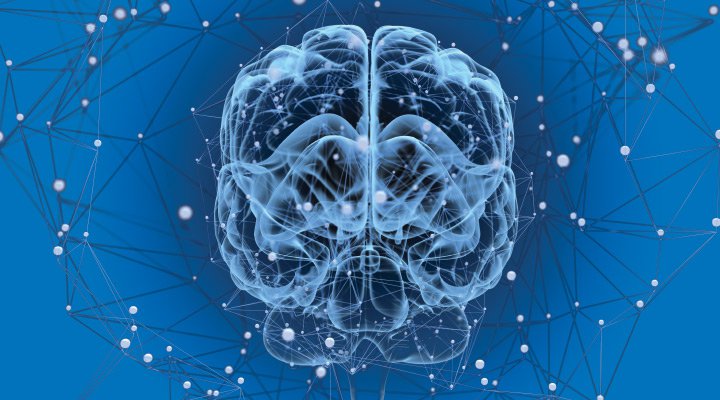So, I see that PQQ (Pyrroloquinoline quinone) has been talked about off and on for years on this site, and some people have indicated they were taking it. First question: who out there is taking or has taken PQQ, and what is/was your experience?
-
-Next here is a post I copied and slightly edited from the Ataxia group where I am also active:
-
-
Remember: Never try supplements based on comments from some quack on the internet. Do your own research and talk to your doctor first!!!
-
-
-
This supp is new to me, and this tid bit was the first item that caught my eye:
Neuroprotective effects of pyrroloquinoline quinone against rotenone injury in primary cultured midbrain neurons and in a rat model of Parkinson's disease
sciencedirect.com/science/a...
-
and buried deep in that paper there is this finding:
"PQQ attenuated APO-evoked rotational behavior and reduced the neuronal loss in PD model rats . . . APO-evoked rotation was significantly reduced in PQQ low-, medium-, and high-dose groups"
-
Well that's just fine right . . . but what the heck is APO-evoked rotation?
-
"The apomorphine test using a rotameter has proved to be a popular test for screening the behavioral effects of a wide variety of lesions, drugs, and other experimental manipulations on the brain of rodents.
This test is widely carried out in experiments using animal models of Parkinson disease with unilateral lesions in the dopaminergic nigrostriatal system in which the number and direction of animal rotations is quantified after apormorphine treatment."
-
I'm still not there Joe - what does it MEAN!?
-
Rats that had neurologically induced trouble with rolling gait ran straighter on a rotarod with less rolling motion after they were treated with low, medium, or high doses of PQQ!
-
Does this mean it will work in humans? Who knows. A LOT of stuff that works in rats and mice doesn't work in humans, BUT - there actually are a couple tiny studies of PQQ in humans. Sadly they had nothing to do with Parkinson's, but at least there is something in there about humans:
Dietary pyrroloquinoline quinone (PQQ) alters indicators of inflammation and mitochondrial-related metabolism in human subjects
sciencedirect.com/science/a...
-
Effects of oral supplementation with pyrroloquinoline quinone on stress, fatigue, and sleep
functionalfoodscenter.net/f...
-
-
And finally there is this article that is a promotion for PQQ being sold by Life Extension. The article isn't so important since it's written with the intent to get you to buy the stuff, BUT at the end of the article are all the references to the actual science behind PQQ, and THAT is very interesting (at least to me  )
)
-
How PQQ Protects the Brain
lifeextension.com/magazine/...
-
Anyways, I ordered 3 bottles of the 20 mg capsules and will add them to my list of daily supps and report back any changes 
Joe
and then I posted this today:
-
As a brief side note PQQ is not some weird man made chemical. It is a "micronutrient" found in food including breast milk! - one study in mice showed that when pregnant mice were deprived of PQQ in their diet the offspring had stunted growth.
-
-
Reading more today on this supplement, and all I can say is wow, wow, WOW!! Let's start with this little gem. In this study they say this:
-
-
" PQQ has been drawing attention from both the nutritional and the pharmacological viewpoint. Recently, it has been proposed that PQQ be classified as a new B vitamin. Thanks to the inherent antioxidant and redox modulator property of PQQ in a variety of systems, the possible pharmacological applications of PQQ are also being investigated. Recently, PQQ has also been reported to show neuroprotective effects."
-
Pyrroloquinoline quinone inhibits the fibrillation of amyloid proteins
researchgate.net/publicatio...
-
But wait there's more:
Protective effect of pyrroloquinoline quinone against A-induced neurotoxicity
in human neuroblastoma SH-SY5Y cells
ac.els-cdn.com/S03043940090...
-
The inhibitory effect of pyrroloquinoline quinone on the amyloid formation and cytotoxicity of truncated alpha-synuclein
link.springer.com/content/p...
-
-
Basically these studies are showing the same effect of PQQ on misfolded proteins. Sadly it's all in test tubes and animals. What we need is more human research! Clearly, this is another example of a chemical that deserves serious study in numerous disorders, but it is being ignored because a) there's no money to be made and b) it's outside "normal" western medicine's view because it's a "supplement". Thank heavens for researchers who are interested in science and not profit!!
-
Anyways, I'd love to hear from folks that are taking it or have taken it!
-
Joe
